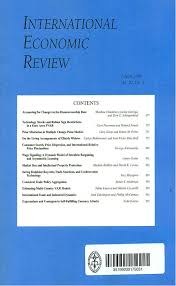
Peer, S., Verhoef, E., Knockaert, J., Koster, P. and Tseng, Y. (2015). Long-Run versus Short-Run Perspectives on Consumer scheduling: Evidence from a Revealed-Preference Experiment among Peak-Hour Road Commuters International Economic Review, 56(1):303--323.
-
Affiliated authors
-
Publication year2015
-
JournalInternational Economic Review
Earlier studies on scheduling behavior have mostly ignored that consumers have more flexibility to adjust their schedule in the long run than in the short run. We introduce the distinction between long-run choices of travel routines and short-run choices of departure times, using data from a real-life peak avoidance experiment. We find that participants value travel time higher in the long-run context, supposedly because changes in travel time can be exploited better through the adjustment of routines. Schedule delays are valued higher in the short run, reflecting that scheduling restrictions are typically more binding in the short run.